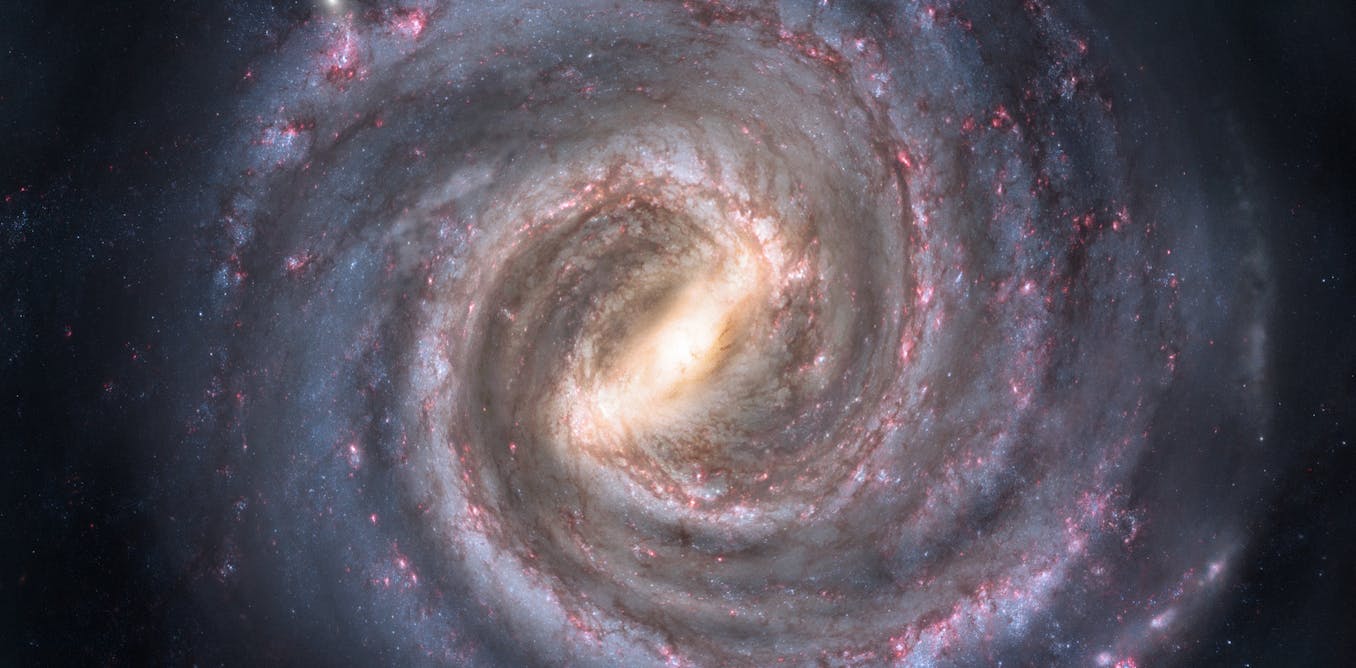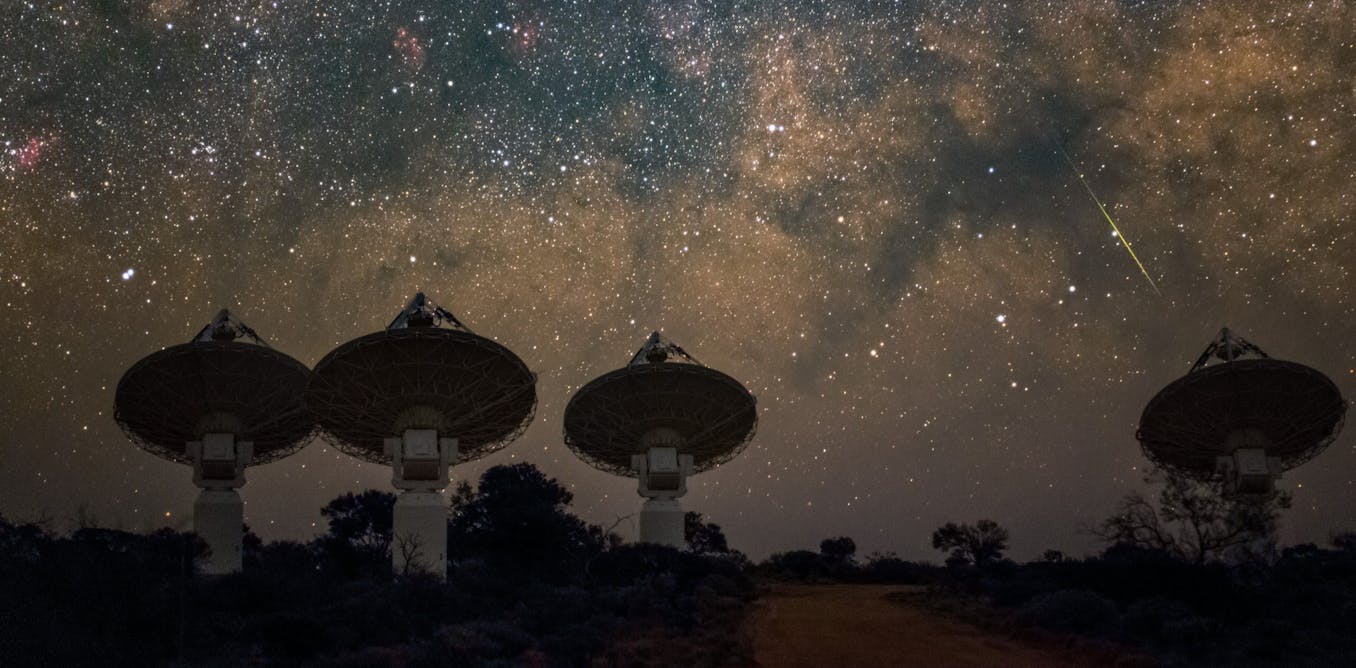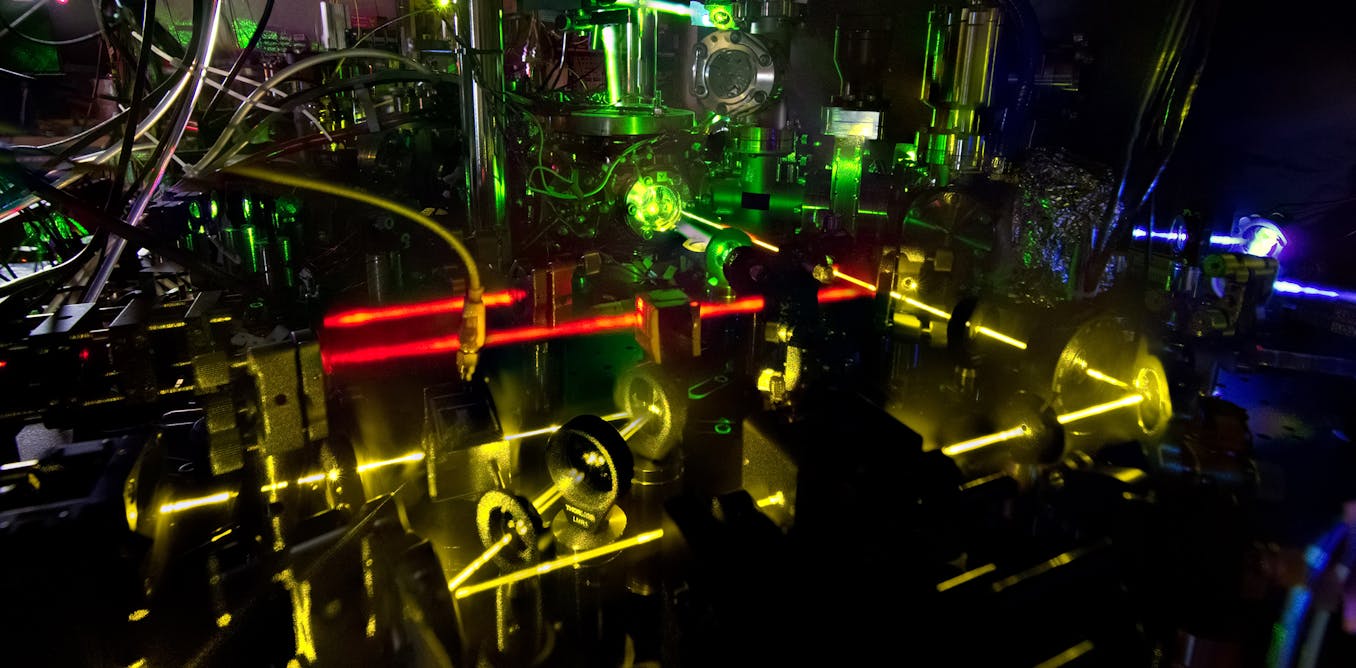NASA's OSIRIS-REx will land on an asteroid to bring home rocks and dust – if it can avoid Mt. Doom
OSIRIS-REx will touch down on asteroid Bennu, collect a sample of the dust and begin its journey back to Earth, where scientists will study it, hoping to learn secrets of the solar system's origin.
Oct. 19, 2020 • ~8 min
2020 Nobel Prize in physics awarded for work on black holes – an astrophysicist explains the trailblazing discoveries
The 2020 Nobel Prize in physics was awarded to three scientists – an Englishman, an American and a German – for breakthroughs in understanding the most mysterious objects in the universe: black holes.
Oct. 6, 2020 • ~6 min
The detection of phosphine in Venus' clouds is a big deal – here's how we can find out if it's a sign of life
News that Venus may harbor life has swept the globe. So how do we find out for sure? A planetary scientist explains what's next.
Sept. 18, 2020 • ~7 min
The detection of phosphine in Venus' clouds is a big deal – here's how we can find out if it really is life
News that Venus may harbor life has swept the globe. So how do we find out for sure? A planetary scientist explains what's next.
Sept. 18, 2020 • ~7 min
Neowise: an increasingly rare opportunity to spot a comet with the naked eye
Neowise has an orbit of almost 6800 years, meaning that the last generation of people to see it would have lived during the 5th millennium BC.
July 16, 2020 • ~7 min
First space tourists will face big risks, as private companies gear up for paid suborbital flights
When it comes to commercial space tourism, suborbital flight are the first frontier. But what are the risks? Are there health requirements? What should you know before taking such a way-out trip?
June 11, 2020 • ~9 min
How Europe's CHEOPS satellite will improve the hunt for exoplanets
The primary objective of CHEOPS is to better understand the planets that we’ve already found. And its mission is now in full swing.
May 27, 2020 • ~6 min
Half the matter in the universe was missing – we found it hiding in the cosmos
Cosmologists had only been able to find half the matter that should exist in the universe. With the discovery of a new astronomical phenomenon and new telescopes, researchers just found the rest.
May 27, 2020 • ~11 min
Pairing lasers with microwaves makes mind-bogglingly accurate electronic clocks – a potential boon for GPS, cell phones and radar
Researchers have made some of the most accurate clocks imaginable in recent years, but the trick is harnessing those clocks to electronics. Using lasers to tune microwaves bridges the gap.
May 22, 2020 • ~7 min
/
20





